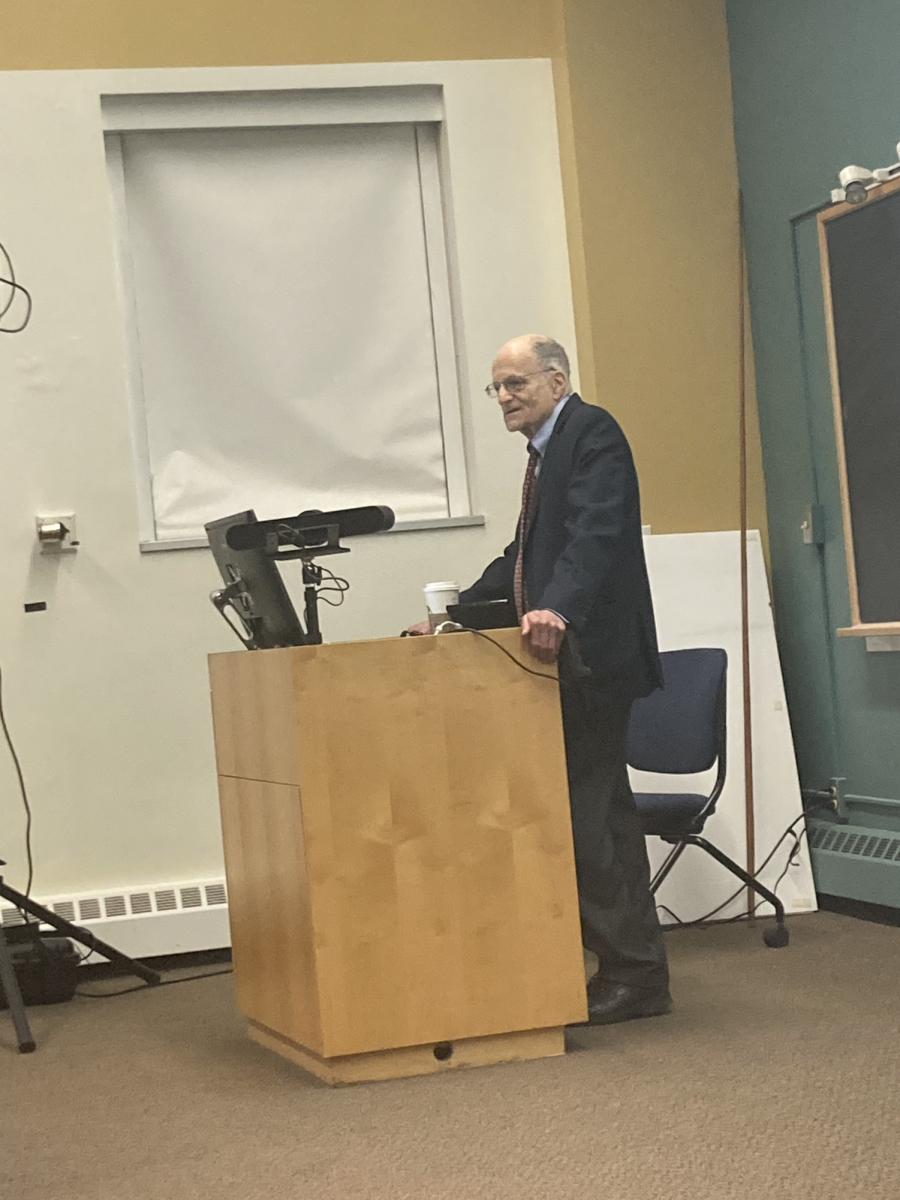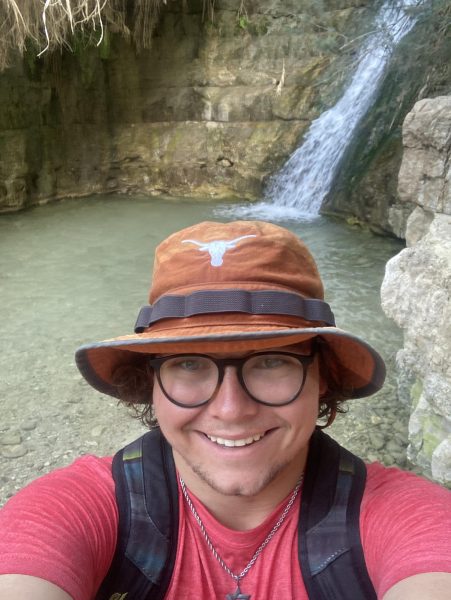Carleton College’s Economics department welcomed Dr. Thomas J. Sargent for its annual Veblen-Clark Lectureship. Dr. Sargent shared the 2011 Nobel Memorial Prize in Economics with Dr. Richard Sims for their work on empirical research on cause and effect in the macroeconomy.
Etta Humes ’25, an economics major who attended the lecture, stated that she was “Really excited about hearing Dr. Sarget. I’m in Intermediate Macroeconomic Theory right now, and my professor, Ethan Struby, was raving about this guy and his work. I thought I would check it out because it seems like a fascinating subject.”
Sargent, the 29th most cited economist in the world, has been renowned for his academic work as well as his non-academic presence. Sargent appeared in a 2017 Ally Financial commercial. The commercial, which was shown during the lecture, shows Dr. Sargent describing an inability to predict future CD rates.
The purpose of Dr. Sargent’s talk was to discuss Artificial Intelligence and its sources. Carleton’s Economics department advertised the event to students and faculty. In a message released to majors, the department described the talk as delving “…into the realm of artificial intelligence (AI), looking closely at the foundational tools computer scientists use to create and enhance it. His discussion centers around a paradox: the tools that computer scientists deploy come from subject areas in which cognitive psychologists tell us that thousands of years of evolution has left us cognitively disabled. Sargent traces the origins of AI back to the contributions of figures like Galileo and Darwin, highlighting how the interplay between AI and our inherent cognitive limitations can guide our educational pursuits.”
Gavyn Jensen-Schneider ‘25, another economics major at the talk, discussed his thoughts on the topic. “It’s a really cool perspective to see learners and scholars before us as the basis for a topic as large as big learning and artificial intelligence.”
Sargent was introduced by Professor Nathan Grawe. Grawe, a professor in the Economics department who studied under Dr. Sargent at the University of Chicago, discussed the role that Dr. Sargent had on Professor Grawe’s work. Grawe stated that “it’s important to have models to build our life off of. Professor Sargent was a model to me in the areas of academic integrity, academic honesty and academic curiosity.”
The Economics department hosts the Veblen-Clark Lectureship to honor two former members of the economics community at Carleton, Thorstein Veblen and John Bates Clark. Past speakers have included notable economists such as Robert Solow, Robert Lucas Jr., James Tobin and Joseph Stiglitz.
Dr. Sargent started by discussing his father’s admiration for Thorstein Veblen, one of the namesakes of the lectureship. Dr. Sargent discussed his father’s admiration for his work and intellectual prowess. “My dad was a navy man, and swore like a navy man. But he read a lot too. He read a lot of Veblen, so I’m happy to be here today.”
Dr. Sargent discussed the limitations and implications of the advancement of Artificial Intelligence and Machine Learning. Among other topics, Sargent opined on the history of Big Data. Sargent believes that the process of examining Big Data has been a process in the making since the Scientific Revolution. “You look at these big names, these giants, like Brahe, and Newton, and Galileo, and Copernicus, and Darwin, and you think to yourself ‘wow. That’s a lot of data.’” Sargent continued by saying that “This data is the basis for what we define as intelligence. “Intelligence is simply pattern recognition, generalization, and decision making. We do these actions with a lot of data in front of us. The fathers of the scientific revolution were early adopters of what we now think of as the job of machine learning.”
Sargent then went on to cite the Canadian psychologist Steven Pinker in what would become the foundation for his lecture. “If you read his [Pinker’s] book, the Blank State, he describes these three areas of ‘Cognitive Disability.’ These three areas that our brains can’t really understand and really just become limitations to what we can do. Pinker identifies three of them, but I’m going to add a fourth. Pinker says that these three evolutionary limitations are statistics, biology, and economics, but I think that there’s a fourth. I think that physics is the final area that our brains can’t really understand and are sort of limitations to our intelligence.”
After the lecture, the department opened the floor up for questions. When asked about the implications of AI as a positive or negative tool in the future of humanity, Sargent responded that “If you’re an optimist, you’ll have more fun in your life.” He went on to say that “Technological change happens. We know this as economists and as people. My dad’s job no longer exists. Is that necessarily a sad thing? I don’t know, he hated his job.”
Many students continued to have thoughts on the lecture after its conclusion. Jensen-Schneider commented that “It was interesting to see the way that our collection of big data is something that people have been doing for a long time.” Other students, like Humes, concurred. “I thought it was interesting to see this development over time. It’s a topic that I think is going to be very important in the coming years.”
Dr. Sargent won the The Sveriges Riksbank Prize in Economic Sciences in Memory of Alfred Nobel in 2011 with Princeton University Professor Christopher Sims. At the time, he was teaching at the University of Minnesota and a Fellow at the Hoover Institute. Sargent, who currently works at NYU, has served previously as the president of the Econometric Society, the president of the American Economic Association and the president of the Society for Economic Dynamics. Dr. Thomas Sargent is the Thirty-Seventh economic scholar brought by the Veblen-Clark Lectureship, and the eleventh Nobel Memorial Prize in Economics laureate brought by the lectureship.











